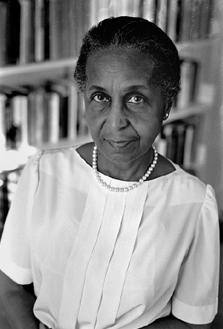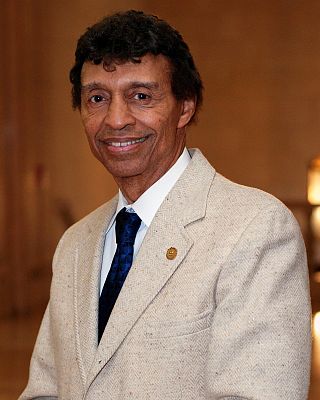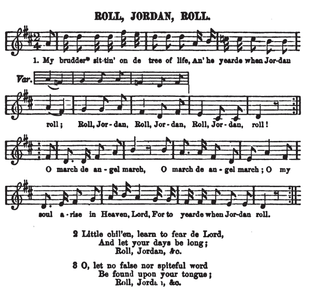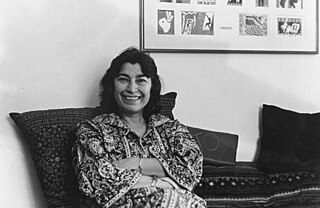Related Research Articles
Musicology is the scholarly study of music. Musicology research combines and intersects with many fields, including psychology, sociology, acoustics, neurology, natural sciences, formal sciences and computer science.

The doctor of musical arts (DMA) is a doctoral academic degree in music. The DMA combines advanced studies in an applied area of specialization with graduate-level academic study in subjects such as music history, music theory, or music education. The DMA degree usually takes about three to four years of full-time study to complete, preparing students to be professional performers, conductors, and composers. As a terminal degree, the DMA qualifies its recipient to work in university, college, and conservatory teaching/research positions. Students seeking doctoral training in musicology, teaching, leadership, music administration or music theory typically enter a doctor of music education (DME) or PhD program, rather than a DMA program.

Marian Wright Edelman is an American activist for civil rights and children's rights. She is the founder and president emerita of the Children's Defense Fund. She influenced leaders such as Martin Luther King Jr, and Hillary Clinton.

Eileen Jackson Southern was an American musicologist, researcher, author, and teacher. Southern's research focused on black American musical styles, musicians, and composers; she also published on early music.
Olly Woodrow Wilson, Jr. was an American composer of contemporary classical music, pianist, double bassist, and a musicologist. He was one of the most preeminent composers of African American descent in the twentieth and twenty-first centuries. He is known for developing a list of Heterogenous Sound Ideals that is widely used to dissect different aspects of music, with an emphasis on African culture. According to Wilson himself, "The essence of Africanness consists of a way of doing something, not simply something that is done" (1991). This motto is the basis of Wilson's work in the realm of ethnomusicology. He is also known for establishing the TIMARA program at Oberlin Conservatory, the first-ever conservatory program in electronic music.
Janet Catherine Berlo is an American art historian and academic, noted for her publications and research into the visual arts heritage of Native American and pre-Columbian cultures. She has also published and lectured on gender studies, the representation and participation of women in indigenous and visual arts, the history of graphic arts since the mid-19th century, indigenous textile arts, and American quilting history and traditions. In the early portion of her academic career Berlo made notable contributions towards the understanding of the art and iconography of Mesoamerica, in particular that of the Classic-period Teotihuacan civilization. From 2003 to 2021, Berlo held the position of Professor of Art History and Visual and Cultural Studies at the Department of Art and Art History, University of Rochester, New York. She is currently Professor Emerita.
Victor Kofi Agawu is a Ghanaian musicologist and music theorist. He often publishes as V. Kofi Agawu and specializes in musical semiotics and ethnomusicology. He is a Distinguished Professor at the Graduate Center, CUNY.

Harrison Leslie Adams Jr. was an American composer. His works have been performed by the Prague Radio Symphony Orchestra, Iceland Symphony Orchestra, Buffalo Philharmonic, and Indianapolis Symphony, and commissioned by The Cleveland Orchestra, Ohio Chamber Orchestra, Cleveland Chamber Symphony, and the Center for Black Music Research, among others. Metropolitan Opera artists have performed his vocal works internationally. He has also received composition awards from the National Association of Negro Women and the Christian Arts National Competition for Choral Music. Adams is best known for writing music for voice but has also written numerous purely instrumental compositions as well. Adams's music is composed largely within the tradition of Western classical music and also incorporates elements unique to African-American music.

"Roll, Jordan, Roll", also "Roll, Jordan", is a spiritual created by enslaved African Americans, developed from a song written by Isaac Watts in the 18th century which became well known among slaves in the United States during the 19th century. Appropriated as a coded message for escape, by the end of the American Civil War it had become known through much of the eastern United States. In the 19th century, it helped inspire blues, and it remains a staple in gospel music.

Women in musicology describes the role of women professors, scholars and researchers in postsecondary education musicology departments at postsecondary education institutions, including universities, colleges and music conservatories. Traditionally, the vast majority of major musicologists and music historians have been men. Nevertheless, some women musicologists have reached the top ranks of the profession. Carolyn Abbate is an American musicologist who did her PhD at Princeton University. She has been described by the Harvard Gazette as "one of the world's most accomplished and admired music historians".
Heather A. Williams is a scholar of African American studies and lawyer. She serves as Presidential Professor and Professor of Africana Studies at the University of Pennsylvania.
Ingrid Monson is Quincy Jones Professor of African-American Music, supported by the Time Warner Endowment, and Professor of African and African American studies at Harvard University.

Kyra Danielle Gaunt is an African American ethnomusicologist, Black girlhood studies advocate, social media researcher, feminist performance artist, and professor at the University at Albany in New York State. Gaunt's research focuses on the hidden musicianship of black girls' musical play at the intersections of race, racism, gender, heterosexism, misogynoir, age, and the kinetic-orality of the female body in the age of hip-hop. Her current research focuses on "the unintended consequences of gender, race, and technology from YouTube to Wikipedia."
Portia Katrenia Maultsby is an American ethnomusicologist and educator. She is a professor emerita at Indiana University Bloomington and specializes in African-American music. She founded the university's Archives of African American Music and Culture in 1991.
Mellonee Victoria Burnim is an American ethnomusicologist. A professor emerita at Indiana University Bloomington who specializes in African American gospel music, she previously served as director of the university's Archives of African American Music and Culture.

Frances Smith Foster is an American researcher and emeritus Professor of African-American studies and women's history. She has previously served as the Charles Howard Candler Professor of English and Women's Studies at Emory University.
Maria Rika Maniates was a Canadian musicologist who taught at the University of Toronto. She began her career as a lecturer at the University of Toronto Faculty of Music in 1965 and held various positions in the department, such as associate professor and full professor of musicology. Over the course of her career, Maniates was a member of multiple music councils and music societies and was director-at-large of the American Musicological Society. Following her retirement from the University of Toronto in 1995, she was made professor emerita. Maniates examined music in papers delivered to Canada and the United States and contributed to The New Grove Dictionary of Music and Musicians as well as various musicological journals.
Helen Walker-Hill was a Canadian pianist and musicologist who specialised in the music of black women composers.
Marva Griffin Carter is an American musician, composer, musicologist, and author. She has worked as an academic administrator and professor at Georgia State University since 1993. In 2020 the Society for American Music recognized her work with a Lifetime Achievement Award, granted "in recognition of the recipient's significant and substantial lifetime achievement in scholarship, performance, teaching, and/or support of American Music."
References
- 1 2 3 4 5 6 7 8 Graham, Sandra Jean (2010-05-26). "Wright, Josephine". Grove Music Online. Oxford University Press. doi:10.1093/gmo/9781561592630.article.a2087811. ISBN 978-1-56159-263-0.
- 1 2 3 Clawson, Kerry (2015-03-19). "Students have chance to 'Meet the Orchestra'". The Akron Beacon Journal. pp. E017. Retrieved 2020-08-06– via Newspapers.com.
- ↑ "Teacher names Harvard in race bias suit". The Boston Globe. 1981-05-06. p. 50. Retrieved 2020-08-06– via Newspapers.com.
- 1 2 3 "Josephine Wright Earns One of Highest Honors in Field of Musicology – News – College of Wooster" . Retrieved 2020-08-06.
- ↑ "Profesor earns honor". News-Journal. 1997-11-30. p. 22. Retrieved 2020-08-06– via Newspapers.com.